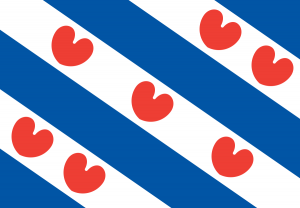Language/Western-frisian/Grammar/Questions
Hi Western Frisian learners! 😊
In this lesson, we will dive into the world of questions in Western Frisian. You will learn how to ask questions and how to answer them.
Basic Word Order
In Western Frisian, the basic word order is subject-verb-object (SVO), like in English. For example, "Ik ite in appel" means "I eat an apple."
Asking Yes/No Questions
To ask a yes/no question in Western Frisian, you simply invert the subject and the verb. For example, instead of saying "Ik bin bliid" ("I am happy"), you can ask "Bin ik bliid?" ("Am I happy?").
Here are some other examples:
| Western Frisian | Pronunciation | English |
|---|---|---|
| Geane wy nei it strân? | ['ɣɛ.nə wɪ 'nɛɪ ɪt strɑn] | Are we going to the beach? |
| Kinsto helppe? | ['kɪnsto 'hɛlpə] | Can you help? |
| Is iten klear? | ['ɪs 'ɪtən klɛr] | Is the food ready? |
To answer these questions, you can use a simple "ja" (yes) or "nee" (no).
Asking Information Questions
Information questions in Western Frisian usually begin with a question word, such as "wêr" (where), "wanneer" (when), "hokker" (which), "hoe" (how), "wa" (who), or "wat" (what).
Here are some examples:
| Western Frisian | Pronunciation | English |
|---|---|---|
| Wêr wennest do? | [wɛr ˈʋɛnəst do] | Where do you live? |
| Hoe giet it mei dy? | [hoə ɣɪt ɪt mei dy] | How are you? |
| Wat is dyn namme? | [wat ɪs dən ˈnɑmə] | What is your name? |
To answer information questions, you can simply give the requested information.
Negative Questions
Negative questions in Western Frisian are formed using the word "net", which means "not". For example, instead of asking "Hast do tiid?" ("Do you have time?"), you can ask "Hast do net tiid?" ("Don't you have time?").
Here are some other examples:
| Western Frisian | Pronunciation | English |
|---|---|---|
| Wist do net dat ik komme soe? | [wɪst do nɛt dɑt ɪk ˈkɔmə soə] | Didn't you know that I was coming? |
| Wollen jim net nei de film? | [ˈʋɔlən jɪm nɛt nɛɪ də fɪlm] | Don't you want to go to the movies? |
To answer negative questions, you can use "ja" (yes) or "nee" (no) to indicate agreement or disagreement with the negative assumption.
Dialogue
Here is a dialogue to help you see Western Frisian questions in context:
- Person 1: Wêr wennest do? (Where do you live?)
- Person 2: Ik wennje yn Fryslân. (I live in Friesland.)
- Person 1: Hasto in hûn? (Do you have a dog?)
- Person 2: Ja, ik ha in hûn. (Yes, I have a dog.)
- Person 1: Wêr hâldsto fan ite? (What do you like to eat?)
- Person 2: Ik hâld fan pizza. (I like pizza.)
Culture and Interesting Facts
Did you know that Western Frisian is the closest living language to English after Scots? Both Western Frisian and English are part of the Anglo-Frisian language group.
In the Netherlands, Western Frisian is an official language in the province of Friesland, where it is spoken by over 50% of the population. The language has a rich literary tradition dating back to the 16th century.
Practice with Native Speakers
To improve your Western Frisian grammar, you can also use the Polyglot Club website. Find native speakers and ask them any questions!
Sources

